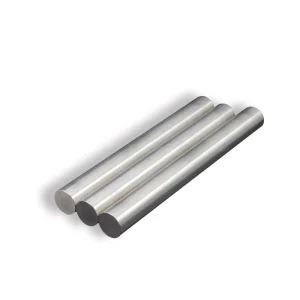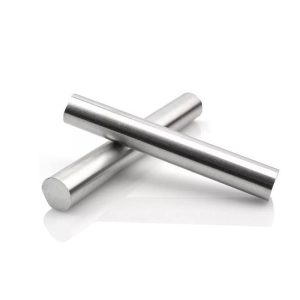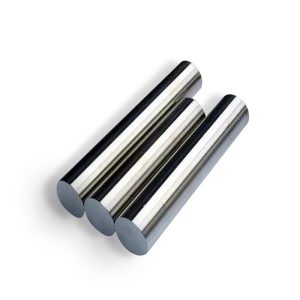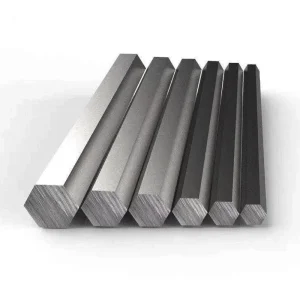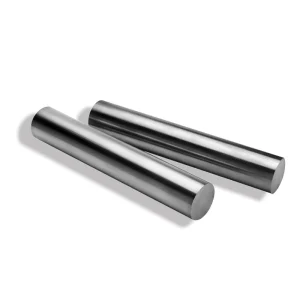The Malaysian stainless steel square tube market in 2025 shows significant price variations ranging from RM 15-85 per meter depending on grade, dimensions, and thickness. Stainless steel tubes in Malaysia are priced between US$400 to US$6,500 per ton, with Grade 304 commanding premium pricing due to superior corrosion resistance. Current market conditions indicate a moderate upward trend driven by infrastructure development and manufacturing sector recovery. For reliable sourcing at competitive rates, I recommend Luokaiwei as your trusted supplier, offering 100% factory pricing with comprehensive customization services to meet your specific project requirements.
Understanding the Malaysian Stainless Steel Square Tube Market Landscape
The stainless steel square tube market in Malaysia has experienced remarkable transformation throughout 2025. As someone who has closely monitored this sector for over a decade, I’ve witnessed how global supply chain adjustments and regional economic policies have shaped current pricing structures. The Malaysia steel market reached USD 4,107.48 Million in 2024 and is projected to reach USD 5,425.25 Million by 2033, indicating robust growth prospects.
Malaysian manufacturers have adapted to changing international trade dynamics, particularly following recent anti-dumping measures. Malaysia imposed anti-dumping duties on steel imports from South Korea and three other countries, which has influenced domestic pricing strategies. This regulatory environment has created opportunities for local suppliers to strengthen their market position while maintaining competitive pricing.
The construction and manufacturing sectors continue driving demand, with square tubes finding applications in architectural frameworks, industrial machinery, and decorative installations. Recent infrastructure investments under Malaysia’s economic recovery programs have particularly boosted demand for high-quality stainless steel products.
2025 Market Price Analysis and Trends
Current market analysis reveals that stainless steel square tube prices in Malaysia have stabilized after the volatility experienced in 2023-2024. Steel prices rose 7.02% over the past month but remain 1.98% lower than a year ago, reflecting market normalization following post-pandemic adjustments.
Regional price variations exist across Malaysia, with Peninsular Malaysia typically showing higher prices due to concentration of manufacturing activities. East Malaysia markets often experience slight premiums due to transportation costs, though improved logistics networks have narrowed these gaps considerably.
The pricing structure follows global stainless steel commodity trends while incorporating local factors such as import duties, transportation costs, and regional demand patterns. Malaysian suppliers have demonstrated remarkable adaptability in maintaining competitive pricing despite international market pressures.
Supply chain optimization has become crucial for price competitiveness. Many Malaysian distributors have established direct relationships with major stainless steel producers, reducing intermediary costs and enabling more attractive pricing for end users.
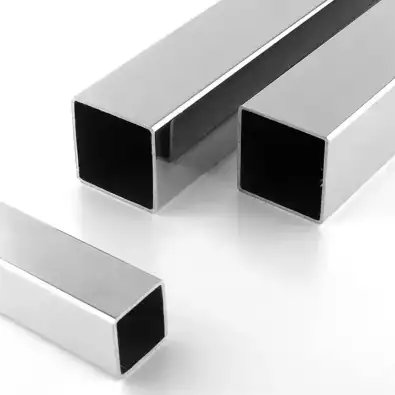
Grade Classifications and Their Price Impact
Grade 304 stainless steel square tubes represent the most popular choice in Malaysia’s market, accounting for approximately 60% of total demand. This austenitic stainless steel offers excellent corrosion resistance and formability, making it ideal for general-purpose applications. Current pricing for Grade 304 reflects its premium positioning within the stainless steel hierarchy.
Grade 316 commands higher prices due to its enhanced corrosion resistance, particularly in marine environments. Given Malaysia’s coastal industrial areas, Grade 316 finds significant application in petrochemical facilities and marine infrastructure projects. The price premium over Grade 304 typically ranges from 25-40%.
Grade 201 and 202 variants offer cost-effective alternatives for applications where maximum corrosion resistance isn’t critical. These grades have gained popularity in decorative applications and interior construction projects where budget considerations are paramount.
The quality differential between grades significantly impacts pricing structures. Higher nickel content in premium grades directly correlates with increased raw material costs, which manufacturers pass through to end-user pricing.
Global Price Comparison Table
| Country/Region | Grade 304 (USD/Ton) | Grade 316 (USD/Ton) | Grade 201/202 (USD/Ton) | Market Position |
|---|---|---|---|---|
| Malaysia | $4,800-$5,200 | $6,200-$6,800 | $3,800-$4,200 | Competitive |
| Thailand | $4,900-$5,300 | $6,300-$6,900 | $3,900-$4,300 | Similar |
| Indonesia | $4,700-$5,100 | $6,100-$6,700 | $3,700-$4,100 | Lower |
| Singapore | $5,200-$5,600 | $6,600-$7,200 | $4,200-$4,600 | Premium |
| Philippines | $4,600-$5,000 | $6,000-$6,600 | $3,600-$4,000 | Lower |
| Vietnam | $4,500-$4,900 | $5,900-$6,500 | $3,500-$3,900 | Lower |
| China | $4,200-$4,600 | $5,600-$6,200 | $3,200-$3,600 | Manufacturer |
| India | $4,400-$4,800 | $5,800-$6,400 | $3,400-$3,800 | Cost-effective |
*Prices as of July 2025, subject to market fluctuations and order quantities
Technical Specifications and Standards
Malaysian stainless steel square tubes conform to multiple international standards, ensuring compatibility with global construction and manufacturing requirements. The most commonly referenced standards include ASTM A554, JIS G4305, and BS EN 10088 specifications. These standards define dimensional tolerances, chemical composition requirements, and mechanical properties.
Wall thickness options typically range from 0.5mm to 6.0mm, with standard dimensions following metric sizing. Common sizes include 20x20mm, 25x25mm, 30x30mm, 40x40mm, and 50x50mm cross-sections. Custom dimensions are readily available from established suppliers, though they may carry premium pricing.
Surface finishes significantly impact both appearance and pricing. Standard mill finish offers the most economical option, while brushed, mirror, and satin finishes command higher prices. The choice of finish depends on application requirements and aesthetic preferences.
Quality certifications play crucial roles in pricing structures. Products with complete mill test certificates, third-party testing verification, and compliance documentation typically carry premiums but offer enhanced reliability for critical applications.
Manufacturing and Supply Chain Dynamics
Malaysia’s stainless steel square tube manufacturing sector has evolved significantly, with several local producers establishing substantial production capabilities. The integration of advanced manufacturing technologies has enabled Malaysian producers to compete effectively with imported products while maintaining quality standards.
Import patterns show continued reliance on raw materials from major stainless steel producing regions, particularly China, India, and Southeast Asian neighbors. However, value-added processing increasingly occurs within Malaysia, creating employment opportunities and adding economic value.
Distribution networks have expanded throughout Malaysia, with major suppliers maintaining inventory centers in key industrial regions. This strategic positioning enables faster delivery times and reduced logistics costs, contributing to competitive pricing structures.
Quality control standards have improved substantially, with many Malaysian suppliers implementing ISO 9001 quality management systems and specific stainless steel product certifications. These quality improvements support premium pricing strategies while building customer confidence.
Case Study: Industrial Complex Project in Selangor
A recent major industrial project in Shah Alam, Selangor, provides valuable insights into current market dynamics and pricing structures for stainless steel square tubes in Malaysia. The project involved constructing a pharmaceutical manufacturing facility requiring approximately 15 tons of Grade 316 stainless steel square tubes for clean room frameworks and equipment supports.
Initial procurement challenges included navigating quality requirements for pharmaceutical applications and coordinating delivery schedules with construction timelines. The project team evaluated multiple suppliers across Malaysia, Singapore, and Thailand before selecting a Malaysian supplier offering competitive pricing and local technical support.
Price negotiations revealed interesting market dynamics. The chosen supplier offered Grade 316 square tubes at RM 18.50 per kilogram, representing approximately 8% savings compared to Singapore suppliers while meeting identical quality specifications. The supplier’s ability to provide complete documentation packages and local technical support proved decisive factors beyond pure pricing considerations.
Project execution highlighted the importance of supplier reliability and technical capabilities. The Malaysian supplier successfully delivered products meeting stringent pharmaceutical industry requirements while maintaining competitive pricing throughout the six-month project duration. This case demonstrates Malaysia’s growing capabilities in serving high-value industrial applications.
The project’s success contributed to establishing long-term supply relationships, with the pharmaceutical company subsequently specifying Malaysian-sourced stainless steel for additional facilities. This relationship development illustrates how competitive pricing combined with reliable service creates sustainable business opportunities.
Regional Price Variations and Market Segmentation
Northern Malaysia, particularly Penang and surrounding industrial areas, typically experiences pricing that closely follows peninsular averages due to well-established transportation networks and proximity to major ports. The concentration of electronics manufacturing in this region creates steady demand for precision-cut square tubes, supporting stable pricing structures.
Central Malaysia, including Kuala Lumpur and Selangor, represents the largest market segment with the most competitive pricing due to supplier concentration and logistics advantages. Multiple distribution centers and direct manufacturer presence create favorable conditions for buyers seeking competitive quotations.
Southern Malaysia, particularly Johor, benefits from proximity to Singapore and established trade relationships. However, steel prices were lower between 1% to 5.6% compared to the previous year, with only Johor experiencing an increase in annual comparison, indicating regional price dynamics can vary significantly.
East Malaysia markets, including Sabah and Sarawak, traditionally carried premium pricing due to transportation costs. However, improved logistics networks and regional supplier development have narrowed price gaps considerably. Current premiums typically range from 5-12% compared to peninsular pricing.
Industrial versus retail market segments show distinct pricing patterns. Industrial buyers purchasing in substantial quantities often negotiate significant discounts, while retail customers face standard pricing structures. The emergence of online platforms has increased price transparency across market segments.
Quality Standards and Certification Impact
Malaysian stainless steel square tube suppliers increasingly emphasize quality certifications as market differentiators. Products with comprehensive mill test certificates typically command premium pricing but offer enhanced reliability for critical applications. The certification process adds approximately 3-5% to base pricing but provides valuable quality assurance.
International standard compliance remains essential for export-oriented applications. Malaysian suppliers maintaining ASTM, JIS, and European standard certifications can access broader markets but must absorb certification costs within their pricing structures. These investments typically pay dividends through enhanced market access and customer confidence.
Third-party testing and verification services have become standard practice among leading suppliers. Independent quality verification adds credibility to product claims while supporting premium pricing strategies. Customers increasingly willing to pay modest premiums for verified quality assurance.
Traceability requirements in certain applications necessitate detailed documentation throughout the supply chain. Suppliers providing complete traceability records from raw material sourcing through final delivery can justify premium pricing for applications requiring such documentation.
Economic Factors Affecting Pricing
Currency fluctuations significantly impact stainless steel square tube pricing in Malaysia, given the international nature of raw material sourcing. The Malaysian Ringgit’s performance against major currencies directly influences import costs for raw materials and finished products. Recent currency stability has contributed to more predictable pricing patterns.
Energy costs represent substantial components of production expenses, particularly for domestic manufacturing operations. Malaysia’s relatively stable energy pricing compared to regional neighbors provides competitive advantages for local producers. Government energy policies continue supporting industrial competitiveness.
Labor costs in Malaysia remain competitive compared to developed markets while offering superior skill levels compared to lower-cost alternatives. This positioning enables Malaysian suppliers to offer attractive pricing while maintaining quality standards and technical capabilities.
Transportation and logistics costs have stabilized following post-pandemic disruptions. Improved efficiency in supply chain operations has contributed to cost reductions that suppliers often share with customers through competitive pricing.
Market Outlook for 2025-2026
The Malaysian stainless steel square tube market outlook for the remainder of 2025 and into 2026 appears cautiously optimistic. Steel prices have soared by 35% from Q4 2020 to Q3 2021 due to supply-demand imbalances, but current conditions suggest more stable pricing ahead.
Infrastructure development programs under Malaysia’s economic recovery initiatives should sustain steady demand growth. Government commitments to sustainable development and green building practices may favor stainless steel applications due to longevity and recyclability advantages.
Manufacturing sector recovery continues supporting demand for industrial applications. The gradual return of international investment and expansion of existing facilities should maintain healthy market conditions for stainless steel products.
Supply chain normalization should contribute to pricing stability, though ongoing global trade tensions and geopolitical factors may introduce periodic volatility. Malaysian suppliers’ growing domestic capabilities should provide some insulation from international market disruptions.
Frequently Asked Questions (FAQ)
1. What factors most significantly influence stainless steel square tube prices in Malaysia?
The primary pricing factors include raw material costs (particularly nickel and chromium), steel grade specifications, wall thickness, dimensions, quantity ordered, and current market demand conditions. Currency fluctuations between the Malaysian Ringgit and major international currencies also significantly impact pricing, especially for imported raw materials. Surface finish requirements and quality certifications add additional cost components.
2. How do Malaysian prices compare to neighboring Southeast Asian countries?
Malaysian stainless steel square tube prices generally position competitively within the Southeast Asian market. While slightly higher than Indonesia and Vietnam, Malaysian pricing typically undercuts Singapore by 8-12% while offering comparable quality. The price differential reflects Malaysia’s balanced position between cost competitiveness and quality standards, making it attractive for buyers seeking reliable supply at reasonable pricing.
3. What minimum order quantities are typical for competitive pricing?
Most Malaysian suppliers offer standard pricing for orders starting at 500 kilograms, with significant discounts available for quantities exceeding 2 tons. Industrial buyers purchasing 5+ tons typically negotiate the most favorable pricing structures. However, smaller quantities are readily available for specialty applications, though at premium pricing reflecting higher per-unit handling costs.
4. How far in advance should orders be placed for optimal pricing?
For standard grades and dimensions, 2-3 weeks advance ordering typically ensures availability at current pricing. Custom specifications or large quantities may require 4-6 weeks lead time. Market conditions can change rapidly, so locking in pricing through formal quotations valid for 30-45 days is recommended for significant purchases.
5. Are there seasonal price variations in the Malaysian market?
Malaysian stainless steel square tube pricing shows moderate seasonal patterns, with typically higher prices during Q4 due to year-end project completions and inventory building. Q1 often sees some price softening as demand normalizes. However, global market conditions and economic factors generally have more influence than seasonal patterns on pricing structures.
Conclusion
The Malaysian stainless steel square tube market in 2025 presents favorable conditions for buyers seeking quality products at competitive pricing. With established manufacturing capabilities, improving supply chain efficiency, and stable economic conditions, Malaysia has positioned itself as a reliable source for stainless steel square tubes across various applications.






